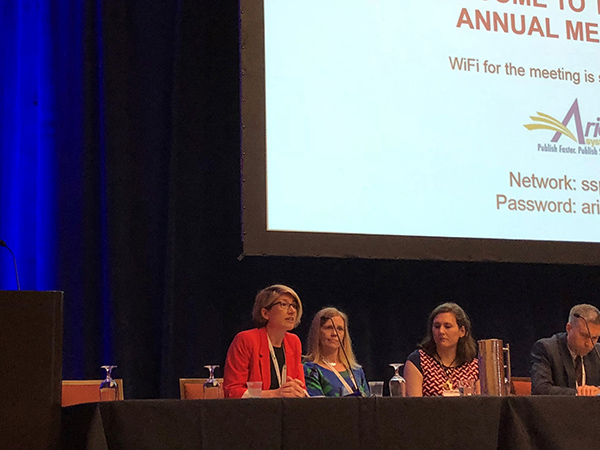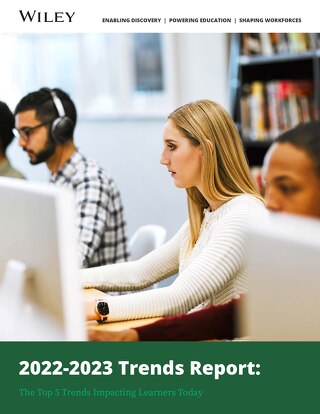how-is-the-scholarly-publishing-community-evolving-alongside-the-wider-culture
June 08, 2018
Sometimes a conference theme exists in name alone. With all that can be explored in any given industry, it’s tough to apply a theme that neatly scoops the topics of discussion into one net.
The theme of this year’s Society for Scholarly Publishing Annual Meeting however: “Scholarly Publishing at the Crossroads: What’s working, what’s holding us back, where do we go from here?” was indelible and pervasive. This was a meeting where the scholarly communications community had to reckon with not only how to advance as an industry, but our place in the context of the wider culture.
Keynote speaker Dr. Safiya Umoja Noble
Safiya Noble’s opening keynote: "Toward an Ethic of Social Justice in Information" set the stage for the meeting. Author of Algorithms of Oppression: How Search Engines Reinforce Racism, Noble prompted us to reflect on how we serve as gatekeepers of information. While our industry publishes research that uncovers bias or promotes social justice, at the same time there remain questions our community has not sufficiently considered. Are we an industry with a diverse workforce that is actively inviting everyone to the table? Are we looking for ways to reduce bias as information providers? Are we offering access to content to those who have previously been shut out? These questions can be uncomfortable, but they’re timely. As Dr. Noble put it “…social responsibility has frequently been reframed as an individual responsibility rather than an institutional or collective commitment.”
Other sessions at the meeting seemed to indicate the seeds of a collective commitment. A pre-meeting session discussed ways toward “Building an Inclusive Culture in Scholarly Publishing” and Wiley Editor Emma Brink reflected on a related session, “One of the most eye-opening sessions covered the results of the Workplace Equity Project survey, which revealed how much work still needs to be done to make our industry an inclusive one that allows equal opportunity to people of all backgrounds.” Yet another session looked at: “SSP at 50: Envisioning a Diverse and Thriving Organization”. With the Society for Scholarly Publishing celebrating its 40th anniversary this year, the panel shared ideas on how to foster a more diverse and welcoming community and industry over the next ten years.
The ”Crossroads” theme captured the emergence of trends in research communications as well. Artificial Intelligence can’t be ignored and one session looked at how publishers can harness it as a discovery tool or for content development, among other purposes. As workflows and the nature of the scholarly record changes, open data and the quest for research reproducibility were also widely discussed, as was the increasing onus on research to have real world impact.

Wiley Editorial Director Alison Labbate (left) speaks as a panelist for the session “Leadership development in scholarly publishing: A practical conversation”
Perennial challenges of recent years were also featured in the program: establishing a sustainable open access program, addressing the activities of SciHub through legal and other means, and tackling the increase in research output from the world’s emerging economies, among others.
Wiley Strategic Market Analyst Bobby Vocile shared his impressions of the meeting. “The sessions I attended addressed everything from new tools and services to help researchers and authors continue to move science forward all the way through to the disruptors that can stand in the way. It was completely refreshing to see industry peers come together to present on the issues we all face in the scholarly publishing industry and truly show that we can overcome these challenges by working together, rather than apart.”
There’s little doubt we’re at a crossroads, and there’s no shortage of work ahead, but it’s exciting to see the scholarly publishing community’s willingness to start the journey.
Image credits: 1. Anne-Marie Green 2. Emma Brink









